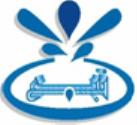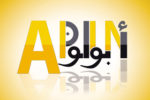Naba'a is a non political, non-profit Lebanese organization which works with Palestinian and Lebanese communities. We aim to create an environment in which children and young people can develop and live in harmony, regardless of their religion, sex and nationality. We work to empower local communities and to enable their members to uphold their rights and to build a better future for themselves.
Our Vision
Naba’a’s vision is a society built on the respect of human rights and one in which individuals are able to take control of the decisions affecting their lives and to address their collective needs.
Our Mission
Naba’a’s mission is to empower local communities so that they can uphold the rights of children and young people; enabling them to play an active and healthy role within their society.
Our Core Values
Neutrality – we are not affiliated to any political party or religious group.
Equity and Equality – we believe that our beneficiaries should have the same opportunities, regardless of gender, religion, race, nationality or disability.
Participation – we encourage the active participation of all the members of the community. We believe that this is the only way to guarantee the ongoing success and sustainability of our projects.
Protection – we believe children are the future of our society and for this reason it is fundamental for them to be protected; allowing them to grow up in a safe and inclusive environment.
Transparency and Accountability – we closely monitor each and every one of our projects and we are committed to guarantee the highest level of accountability to our beneficiaries, partners and donors.
Our History
Naba’a used to be part of the Save the Children-UK mission in Lebanon. After its withdrawal from the country in 2001, our local management team decided to continue working to implement community projects as an independent, registered Lebanese organization. Over the years we have established new networks with local, regional and international partners to continue our mission and work towards our goals.
Our Strategy
Naba'a aims to support young children who are most at risk of violence and neglect in their communities: to provide them with opportunities to develop,physically and socially, and to grow up in a safe,healthy and inclusive environment.
We aim to support children and young people who are at risk of dropping out from school and living in particularly hard circumstances;helping them to realize their potential.
We aim to work with local communities to evaluate and address their needs whilst building their capacities through training and awareness raising: allowing them to become healthy, inclusive and well coordinated places to live.
We aim to influence the decisions of key policy makers and service providers who are responsible for the Palestinian communities living in Lebanon: to uphold the rights of Palestinian children and to be accountable for providing appropriate services.
Our Locations
We currently work in six refugee camps, as well as gatherings and marginalized villages across the country.
Nahr el-Bared Camp
The camp was established in 1949 to offer refuge to Palestinians fleeing from an area around Lake Huleh, in northern Palestine. It is located on the coast, 16 km north of Tripoli. In 2007, as a result of the fighting between the Lebanese army and the Fatah al-Islam group, most of the buildings in the camp were destroyed and its population displaced. Most of its inhabitants found shelter in schools, garages or shared apartments in the nearby Beddawi Camp. The rebuilding of Nahr el-Bared has recently started but the process is facing many challenges due to the delicate political nature of this issue. It will take time before the majority of the people will be able to go back to their houses and resume their normal lives.
Beddawi Camp
The camp was established in 1955 by UNRWA and it is located in the hills 5 km north of Tripoli. Although the buildings have indoor water supply, the sewage system is inadequate; it discharges into the sea and the camp's sewers flood frequently. Unemployment and poverty constitute the main problems in Beddawi, which were exacerbated with the arrival of around 28,000 people as a consequence of the Nahr el-Bared crisis in 2007.
Ein el-Helweh Camp
The camp was originally established in 1948 by the International Committee of the Red Cross to offer refuge to people fleeing from northern Palestine. It is situated near the town of Saida, 45 km south of Beirut, and is the largest refugee camp in Lebanon, in both size and population. There are currently an estimated 40,000 refugees living in this camp. In the nineteen-eighties many Palestinians, fleeing from the hostilities of the civil war, found shelter in Ein el-Helweh. It was not spared from the violence and there were high number of casualties, particularly between 1982 and 1991.
Rashidye Camp
The camp is made up of two parts: the old one was built in 1936 by the French Government to accommodate Armenian refugees and the new one was constructed in 1963 by UNRWA to offer refuge to Palestinian refugees evacuated from Gouraud camp near Baalbeck. During the civil conflict the camp’s infrastructure and buildings were severely damaged and around 5,000 inhabitants were displaced. It is located near Tyre and is home to an estimated 27,000 registered refugees.
El-Buss Camp
This camp was also established by the French Government to accommodate Armenian refugees in 1939. However, it has offered refuge to Palestinians since their arrival in 1948. It is situated 1.5 km from Tyre and around 10,000 people currently live there. The camp was spared by the violence of the civil conflict, due to its small size and location.
Burj el-Shemali Camp
The camp was established in 1948 to provide shelter to the people fleeing from Hawla and Tiberias in northern Palestine. It is located 3 km from Tyre and it currently hosts around 20,000 registered refugees. During the civil conflict the infrastructure within the camp was heavily damaged and its population increased due to the arrival of Palestinian refugees fleeing from other parts of Lebanon. Most of the houses were built with concrete blocks, but there are also many shelters with zinc roofing.






